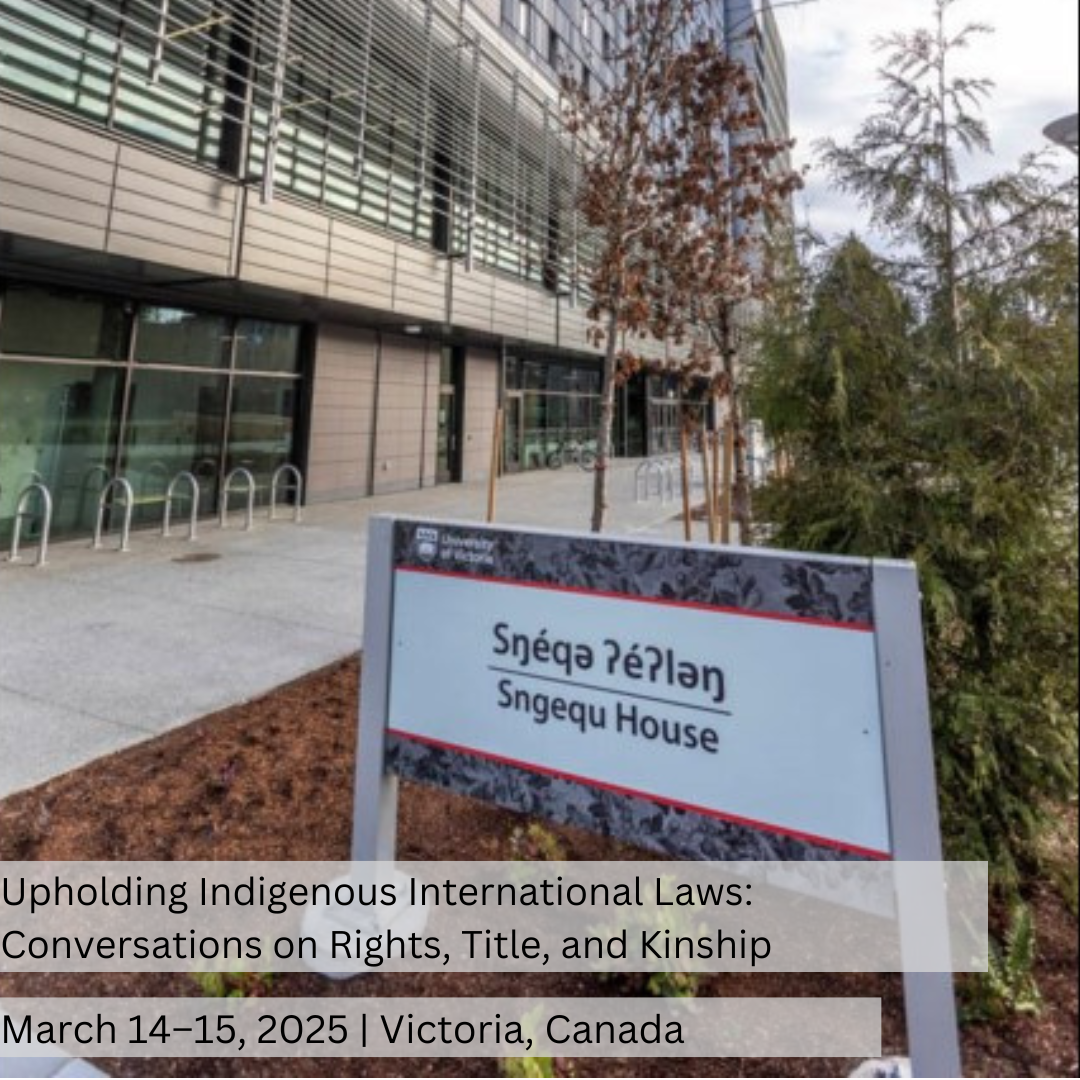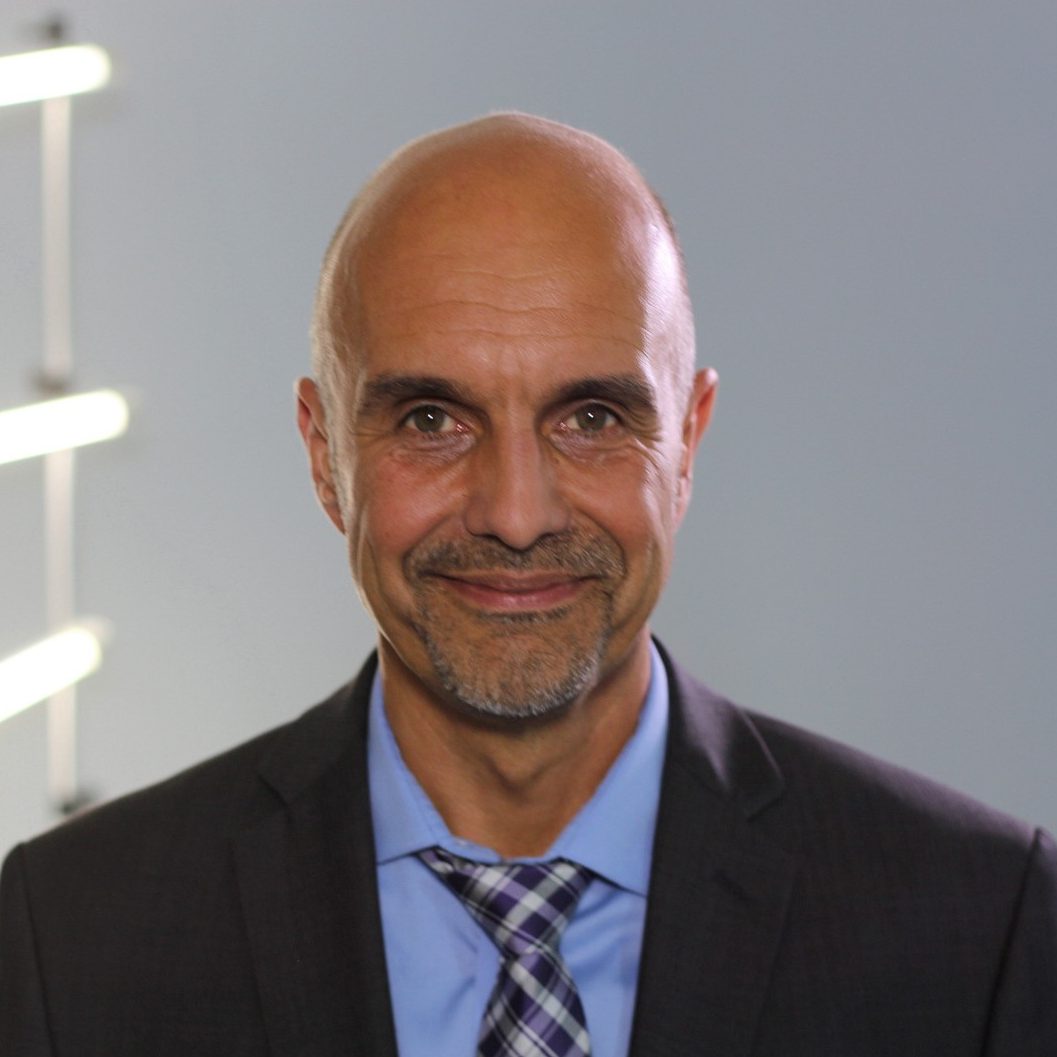BIG Indigenous Speaker Series — Internationalism: De-theorizing Indigenous (Australia) relationality in Water reform diplomacy
featuring Dr. Virginia Marshall (Australian National University)
Join us on Tuesday, September 9th at 3pm (PST) for a special talk from Dr. Virginia Marshall: ‘Indigenous Internationalism: De-theorizing Indigenous (Australia) relationality in Water reform diplomacy’.
Virginia Marshall is a Research Fellow based at the Australian National University’s School of Regulation and Global Governance. She is a practicing lawyer and leading legal scholar with expertise in Aboriginal water rights, native title rights in Sea Country, Indigenous governance and the intersection of Traditional Knowledge systems and western intellectual property regimes, especially as it relates to Indigenous commercialization of traditional medicines.

Indigenous Internationalism and Kinship Diplomacy: The Relational Dimensions of Indigenous International Law
Andrew Ambers and Jeff Corntassel | Rooted: A Publication on Indigenous Law
Published in Rooted: A Publication on International Law, Vol. 3 No. 2
Enactments of Indigenous internationalism, which entail honoring relationships between nations (including plant and animal nations and other more-than-human relations) and are initiated, recalled, and reaffirmed through treaties, alliances, rights, territorial ownership and access, trade relations, and other webs of relational affiliations, contribute to and indeed constitute a diplomatic kinship meshwork. Our engagement with Indigenous internationalism is concerned with theory-building as it relates to conceptualizing kinship as a critical source of Indigenous international law and articulating how we can identify these laws and ethics in expressions of internationalism to uplift, honour, and perpetuate Indigenous sovereignty and self-determining authority. We examine how kinship meshworks order and are ordered by Indigenous international law through expressions of Indigenous internationalism, which exist beyond state borders and are functions of Indigenous diplomacies that honor Indigenous legal orders within a multiplicity of lawful and rights-bearing relations. We identify how understanding Indigenous internationalism requires overturning statist, patriarchal, and extractive visions of diplomacy, sovereignty, and international relations.
Andrew Ambers is from the Kwakwaka’wakw Nation, specifically the ‘Namgis and Ma’amtagila First Nations. He holds a Bachelor of Arts (Hons) from the University of Victoria, and he is currently a Juris Doctor (JD) and Juris Indigenarum Doctor (JID) Candidate at the University of Victoria’s Faculty of Law. Ambers contributes to various Indigenous research projects on Indigenous law, sovereignty, and Aboriginal rights, and he holds advisory role with Indigenous organizations in British Columbia. Ambers is currently working on topics related to Indigenous international law, aquatic Aboriginal Title, coastal Indigenous trade and diplomacy, Indigenous intellectual and real property rights, and the international dimensions of Indigenous rights in Canada, the United States, and beyond.
Jeff Corntassel is a writer, teacher, and father from the Cherokee Nation. As Professor and Acting Director in Indigenous Studies at the University of Victoria, his research and teaching interests focus on “Everyday Acts of Resurgence” and the intersections between Indigenous internationalisms, resurgence, climate change, gender, and community well-being. Jeff situates his work at the grassroots with many Indigenous led community-based programs and initiatives ranging from local food movement initiatives, land-based renewal projects to gendered colonial violence and protection of homelands. He is currently completing work for his forthcoming book on Sustainable Self-Determination, which examines Indigenous climate justice, food security, and gender-based resurgence.

#15 BIG Podcast – “Indigenous Resurgence and Indigenous Internationalism”
featuring Jeff Ganohalidoh Corntassel – Professor in Indigenous Studies & Associate Director of CIRCLE, Victoria, BC, Canada
Indigenous nationhood movements are taking place worldwide in multiple ways and are all connected with the Indigenous resurgence. Indigenous autonomy and self-determination are fundamental to Indigenous resurgence. What are the effects of the Doctrine of Discovery on Indigenous Peoples? What are the Indigenous perspectives on International Relations Theory? Between the Buffalo Treaty, and the role of Indigenous Peoples in the Columbia River treaty renegotiation, Indigenous Peoples are using their internal sovereignty and external sovereignty to establish a stronger political and juridical self-determination. Elements of response and reflection with the Indigenous Scholar Jeff Ganohalidoh Corntassel.
Dr. Jeff Ganohalidoh Corntassel is a writer, teacher and father from the Cherokee Nation. He is a Professor in Indigenous Studies, and cross-listed Professor in the Political Science Department at the University of Victoria as well as Associate Director of the Centre for Indigenous Research and Community-Led Engagement (CIRCLE). Corntassel is a Co-PI with Dr. Emmanuel Brunet-Jailly on the 7-year SSHRC partnership grant entitled “21st Century Borders” and is the lead of Pillar 1 for that grant focusing on Indigenous Internationalism. Jeff’s research and teaching interests focus on “Everyday Acts of Resurgence” and the intersections between Indigenous internationalism, community resurgence, climate change, gender, and community well-being. situates his work at the grassroots with many Indigenous led community-based programs and initiatives ranging from local food movement initiatives, land-based renewal projects to gendered colonial violence and protection of homelands. He is currently completing work for his forthcoming book on Sustainable Self-Determination, which examines Indigenous climate justice, food security, and gender-based resurgence.
Listen on Apple Podcasts, Spotify, YouTube, and the Podcast App!

BIG Coffee Talk — Relational Restoration Decolonizes Globalization
with Raven Borsey and Morgan Brown | University of Victoria, BC | 10:00AM PST, June 9, 2025
In Person: CFGS C168 (Sedgewick building, University of Victoria). The meeting will take place from 10am to 11am PST.
Raven Borsey and Morgan Brown are joining us for a special BIG_Lab Coffee Talk led by the Indigenous Internationalisms group to discuss their restoration work in relationship to the life and waters of Xw’ullemy (the Salish Sea bioregion), including efforts to protect the salmon amidst climate change and depleting fisheries, the restoration of ancestral plant medicines and seed rematriation, and more.
Xwesultun Raven Borsey is from Lummi Nation and is a graduate student in cultural anthropology at Western Washington University. He is a Young Tribal Leader and Research Fellow with the Setting Sun Institute. His work with Setting Sun Institute includes helping to publish ‘Reefnetters of the Salish Sea,’ the final thesis of world-renowned anthropologist Wayne Suttles.
Morgan Brown is a Tsimshian mother and Environmental Education Coordinator for the Swinomish Tribe who empowers Indigenous youth through traditional plant medicine, first foods, and language revitalization. Her work includes cultivating an educational ethnobotanical garden, revitalizing ancestral trade practices, and healing generational trauma with teachings rooted in kinship and stewardship.
Join us in person at Sedgewick C168 in the Centre for Global Studies on the UVic campus. The meeting will take place from 10am to 11am PST.

Towards a Conceptualization of Borders, (Un)civil Society, and Contentious Politics
April 7–8, 2025 | University of Victoria
Members of the Borders in Globalization Lab (BIG_Lab) team will be hosting a workshop event in April 2025 bringing scholars from across the world together to discuss issues of populism, civil society contention, and border politics. The workshop will feature panel presentations by emerging and established scholars working on topics including the discursive making of borders, the politics of resistance in border regions, the imperial and colonial dimensions of borders, and the role of populism and ‘post-truth’ in border contention. Dr. Jeff Corntassel, the lead of BIG_Lab’s Pillar 1 on Indigenous Internationalisms, will give the opening keynote address, along with BIG_Lab team members Dr. Emma Swan, Dr. Maria Sigridur Finnsdottir, and Jules Soupault.
The workshop will also offer the team members an opportunity to present their novel theoretical framework – ‘Constellation of Truths’ (CoT). The CoT framework is rooted in two assumptions: first, that truths and narratives play a crucial role in the (re)production and contestation of borders, bordered subjects, and border identities. Second, that hegemonic truth is in crisis in current political climate, as evidenced in rise of populist and authoritarian politics. Rather than understanding this era as being one of ‘post-truth’ – which presupposes a prior era where truth was important in politics – we contend that truth was also been contested, resisted, and produced through interaction. We argue that as (un)civil society actors in the borderlands are invested in intervening, attempting to construct alternative political imaginaries or producing knowledge in the borderlands, their struggles are generative of a constellation of truths. Within this constellation, diverse voices, narratives, and truth claims all interact with differing degrees of power to construct and broaden the realm of political imaginaries.
See the program below for more details.

Upholding Indigenous International Laws: Conversations on Rights, Title, and Kinship
March 14–15, 2025 | University of Victoria
This gathering of Indigenous knowledge-holders and legal scholars examined the ways that Indigenous nations and communities invoke Indigenous international law to confront ongoing colonization and assert self-determining authority. Amidst grassroots community activism as well as advancing Aboriginal title and jurisdiction, Indigenous peoples are acting on their community laws and protocols to affirm rights and title, rematriate our lands, waters and bodies, and honor kinship relations. This two-day colloquium promoted meaningful conversations around the ways that Indigenous nationhood and internationalism are practiced and adapted to confront contemporary challenges and create meaningful strategies for Indigenous nations.
Click below to view the full program.

Senior Resident Fellow – University of Victoria
Scott Watson
Scott Watson is Associate Professor of International Relations in the Department of Political Science at the University of Victoria. His primary areas of research are international relations theory, international security, global governance of migration, governance of humanitarian assistance and disaster response, and the rise of anti-globalist conspiracy theories. He holds a PhD in Political Science from the University of British Columbia (2006) and is the author of International Order and the Politics of Disaster (Routledge, 2020) and The Securitisation of Humanitarian Migration (Routledge, 2009). He has published articles in Millennium: Journal of International Studies, Security Dialogue, International Political Sociology, International Migration, Nations and Nationalism, and International Relations, among others.

Distinguished Resident Fellow – University of Victoria
Oliver Schmidtke
Oliver Schmidtke is a Professor in Political Science and History at the University of Victoria where he has also served as the director of the Centre for Global Studies in Victoria since 2011. He received his PhD from the European University Institute in Florence and has been a JF Kennedy Fellow at Harvard University, a visiting scholar at Humboldt University Berlin, a F. Braudel Senior Fellow at the European University Institute, and a Marie Curie Fellow at Hamburg University. His research interests are in the fields of the politics and governance of migration, borders, citizenship, nationalism, collective memory, and populism.

#5 Frontlines Are Everywhere — Carving out Resurgent W̱SÁNEĆ Futures with Chazz Elliott
featuring Temoseng Chazz Elliot (Lək̓ʷəŋən and W̱SÁNEĆ Nations)
On location at Temoseng’s Carving Studio in Tsartlip First Nation, Jeff and Chazz talk about the art of carving, what Indigenous internationalism looks like, favorite art projects, and inspirations for his work, including his late father, TEMOSEṈŦET (Dr. Charles Elliott from Tsartlip First Nation) and his mother, Myrna Elliott from Songhees Nation.
Listen to Episode Five of the Frontlines Are Everywhere podcast on YouTube.
The Frontlines Are Everywhere podcast takes a critical look at world politics and Indigenous nationhood by discussing Indigenous-led resurgence and activist movements, Indigenous trade networks, Indigenous climate action and the formation of new alliances that transcend colonial state borders among other topics. Dr. Jeff Ganohalidoh Corntassel will be interviewing Indigenous scholars, activists, artists and knowledge holders from across Turtle Island and around the world in order to gain insight into how Indigenous peoples practice their own forms of Internationalism through intimate connections to land/water, culture and community.

